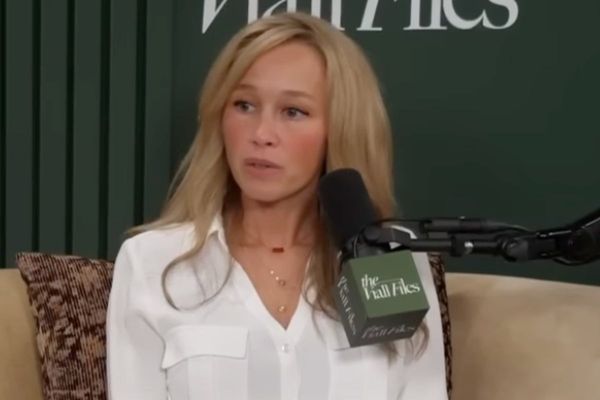The Democrats are holding their fourth presidential debate next week and have announced their fifth next month. The Libertarian Party has had six debates and one forum. The Green Party just held its third candidate forum.
But the Republicans seem to want to hide the fact that two former governors and a former congressman are challenging President Donald Trump's re-nomination.
The GOP has held no official debates _ and none is planned _ though Business Insider, a financial news website, held what it billed as the first GOP debate last month. Two Trump foes, former Massachusetts Gov. Bill Weld and former Illinois Rep. Joe Walsh, took turns arguing why he should be impeached. On Sunday, the third GOP hopeful, former South Carolina Gov. (and Rep.) Mark Sanford, disputed Walsh on CNN's "State of the Union," declaring it was important to "go through the process" before reaching a verdict.
Meanwhile, several state Republican parties are doing their best to snuff out any sign of disunity, even though it's obvious, if Trump stays in office, he'll be re-nominated, given his nearly 90% job approval among Republicans.
Thirty-seven states tightened their rules to keep anti-Trump delegates out of next summer's GOP convention, The New York Times reported. New York and Massachusetts adopted winner-take-all rules that give all delegates to a candidate polling 50 percent.
And six state GOPs canceled caucuses (Nevada and Kansas) or primaries (Alaska, Arizona, South Carolina, Virginia), though the latter plans a convention.
"As a general rule," South Carolina GOP Chairman Drew McKissick claimed, "when either party has an incumbent in the White House, there's no rationale to hold a primary," adding that Trump had "no legitimate primary challenger." He noted that many states canceled GOP primaries in 1984 and 2004, when President Ronald Reagan and George W. Bush sought re-election, and contended Democrats skipped contests including South Carolina's primary when Presidents Bill Clinton and Barack Obama ran in 1996 and 2012.
That claim is, at best, misleading.
First, Trump is not unopposed, having attracted three rivals who held federal or statewide office. Republicans did not call off primaries in 1972, when two congressmen ran against President Richard Nixon, or in 1992, when conservative commentator Patrick Buchanan challenged President George H.W. Bush.
Second, Democratic rules require either primaries or caucuses to pick delegates, regardless of how many candidates run, and enforce democratic procedures. In 1996, Democrats had caucuses, rather than primaries, in Arizona, Kansas and South Carolina, as did several states in 2012.
The Democrats called off four 2012 primaries, in Connecticut, Delaware, South Carolina and Virginia, but only after the filing deadline when no challengers filed against Obama. Republicans in South Carolina, Virginia, Arizona and Alaska canceled 2020 primaries before the filing deadlines, even though it was evident Trump had challengers.
The actions prompted the three Trump foes to issue an unusual joint statement, asking if Republicans "really want to be the party with a nominating process that more resembles Russia or China than our American tradition."
Some GOP officials wanted to go further.
Last winter, a Republican National Committee member from the Virgin Islands, Jevon Williams, floated a plan to cancel the entire primary process and have the national committee declare Trump the nominee. However, party leaders decided that went too far and, instead, the RNC passed a resolution declaring its "undivided support" for Trump.
If Trump's opponents can get attention anywhere, it will be New Hampshire where it costs only a $1,000 filing fee to enter either party's primary and press coverage is extensive. All three Trump opponents have already campaigned there.
Insurgent candidacies helped precipitate President Lyndon Johnson's retirement in 1968 and gave the elder Bush a scare that fore-ordained his general election defeat. Votes are regularly cast against ostensibly unopposed candidates; one in every five 2012 New Hampshire Democratic votes was cast against Obama, many for GOP candidates.
Trump won the 2016 New Hampshire primary, but only polled 35% and narrowly lost the state in November. The state GOP has substantial anti-Trump sentiment, though top Republicans have so far either backed the president or stayed quiet.
Despite their credentials, it's not exactly a heavyweight field, since better-known Trump critics like former Ohio Gov. John Kasich stayed out.
Walsh, 57, was voted out after a single U.S. House term marked by controversy, including questioning Obama's American birth and failing to pay his ex-wife child support. Sanford, 58, whose governorship was marred by scandal when he sought unsuccessfully to cover up his affair with an Argentine woman, was later re-elected to his old U.S. House seat. But he lost a 2018 GOP primary after criticizing Trump. Weld, 74, elected twice to Massachusetts governor as a liberal Republican, later moved to New York and unsuccessfully ran for governor. In 2016, he was the Libertarian Party's vice presidential nominee.
His goal, Walsh said candidly in the Business Insider debate, is "to weaken" Trump to help prevent his re-election. But even a vigorous anti-Trump campaign in New Hampshire is unlikely to harm the president more than Trump has harmed himself.
Still, the Republican establishment is clearly taking no chances.







